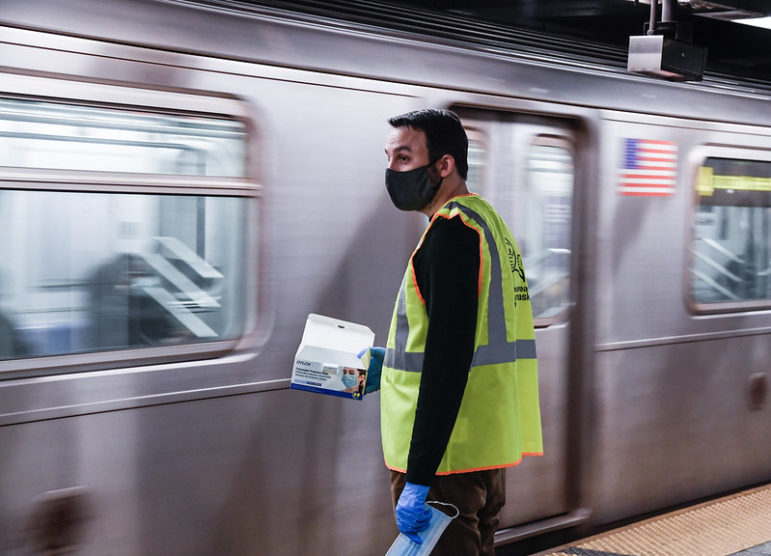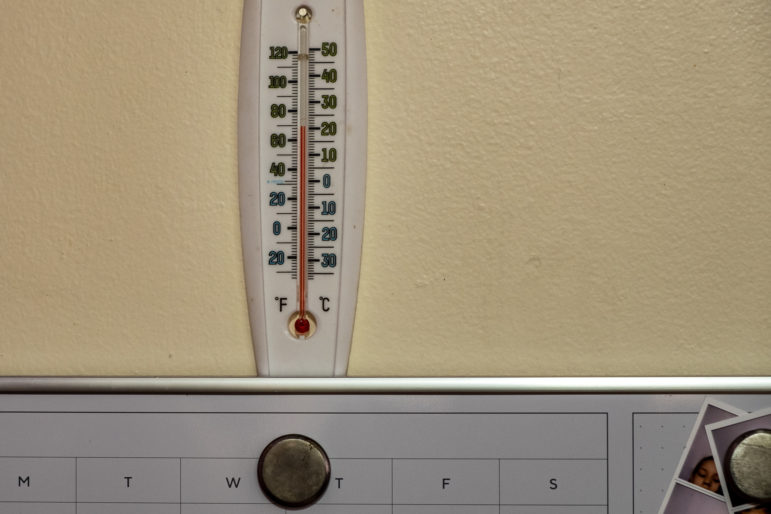
MTA
How do you bring subway ridership back? Have a sale on seats, Andrew Yang says.It’s been an eventful week in the 2021 campaign. Corey Johnson announced he’s running for comptroller, and Cy Vance revealed he is not running for re-election as Manhattan district attorney. Andrew Yang registered a commanding lead in yet another poll. The powerful 32BJ building services union endorsed Eric Adams, while the Freelancers Union split its endorsement between Yang and Maya Wiley. There was a major debate on housing issues, and the Campaign Finance Board published its official debate schedule for the entire election year. Kathryn Garcia, Shaun Donovan and Yang boasted of impressive fundraising hauls that would allow them to unlock public matching funds in the next round of payments.
However, most of the city’s attention—and perhaps much of the world’s—was focused on the Andrew Cuomo saga, which moved from crisis to outright catastrophe, but not to a climax. Among the many effects of that ongoing drama will be its overshadowing the mayoral race right at a time when campaigns were hoping to start getting more voters tuned in.
Against the backdrop of the Albany headlines, several candidates did release or refine some policy ideas this week.
A Latino agenda
Scott Stringer emphasized his family’s Latino roots and his support from Latino elected officials as he rolled out a Latino agenda over the weekend. The comptroller’s stepfather is Carlos Cuevas, the first Latino New York City Clerk as well as a former deputy borough president, and he’s backed by elected officials like Congressman Adriano Espaillat, State Senator Gustavo Rivera, Assemblymember Catalina Cruz and Councilmember Diana Ayala.
The launch of “Estamos con Stringer”—which the campaign said “marks a major step in the race toward mobilizing a critical voting base, and signals the campaign’s intent to focus aggressively on Latino engagement”—is a bold move in a race with Dianne Morales very much in the running and Carlos Menchaca still in the race. Stringer’s 22-point plan is primarily about emphasizing the impact that his broader policy ideas (like expanding access to insurance and healthcare boosting small-business recovery, creating a green workforce, harnessing CUNY and expanding summer jobs) might have on the Latino community. Some proposals are more specifically tailored, like appointing chief diversity officers for the city and for each agency to, in part, achieve the goal of doubling city spending with Latino-owned M/WBEs, and expanding translation infrastructure.
Cutting taxes and regs to help small biz
Maya Wiley wants to wave liquor license taxes, defer water and sewer bills, change the way health inspections are done and create a $30 million emergency grant program among other steps to boost small businesses, which are vital to the city’s economy and have the potential to create economic mobility in Black and brown communities but have been hit hard by COVID-19. Her plan would also make a $7 million investment in growing working cooperatives and other efforts to encourage entrepreneurship in marginalized communities, and make worker co-operatives a preferred contractor for city agencies. Wiley would boost street vendors and M/WBEs, create a commercial landlord code parallel to the one for residential owners, create a Chief Small Business Officer in the mayor’s office and consider restructuring the existing alphabet soup of agencies that in some way interact with small businesses. The dollar amounts in Wiley’s plan—$30 million here, $7 million there—are not overwhelming, but some of her ideas are pretty bold, like using Federal Reserve facilities to create public holding companies to purchase small businesses in crisis and then offload them when conditions improve, or creating investment funds for infrastructure and small businesses support controlled democratically by local communities. The first proposal is modeled on Great Depression programs; the second on an initiative in Boston.
Underground holiday
Yang called for the MTA to use some of the billions it will receive from the federal stimulus package to suspend subway fares for one week beginning May 28, right before Memorial Day weekend. The idea, which would cost around $30 million, is that “the MTA can finally jumpstart lagging ridership (that is currently down 70 percent) and give more NYC families the extra money they need to spend on entertainment, restaurants, and other small businesses across the city during the unofficial start to summer.” It’s unclear that subway ridership is lagging because of the cost of the ride or the fact that so many workers and students are still operating from home.
Parole reform grows nearer
The Assembly’s Committee on Corrections approved the Fair and Timely Parole Act, a measure authored by committee chair and comptroller candidate David Weprin of Queens. The measure would shift how the state decides who gets to leave prison on parole from the current system, under which parole can only be granted “after considering if there is a reasonable probability that, if such inmate is released, he will live and remain at liberty without violating the law, and that his release is not incompatible with the welfare of society and will not so deprecate the seriousness of his crime as to undermine respect for law” to a very different approach. Under the new law, parole would be granted to any incarcerated person appearing before the board who is eligible for release on parole, unless the parole case record demonstrates there is a “current and unreasonable risk the person will violate the law if released and such risk cannot be mitigated by parole supervision.” The bill is aimed at addressing the inequities, delays and unpredictability of the current parole system. As City Limits reported in 2019, the number of releases to parole supervision decreased by 19 percent from 2007 to 2016, and the rate of release dropped from 51 percent in 2005 to 25 percent in 2014-2015. The Senate version, authored by Sen. Gustavo Rivera of the Bronx, is also moving toward a vote on the floor.
A promise as policy
Michelle Caruso-Cabrera, a journalist running for comptroller, said she “does not intend to seek the mayoralty if elected Comptroller,” vowed that she “will not be using the Comptroller’s office for the purpose of a future run for mayor” and called on all of her opponents to do the same. It’s a fairly easy promise for Caruso-Cabrera to make—in a race featuring a Council speaker (Johnson), two state senators (Brian Benjamin and Kevin Parker) and two other lawmakers (Councilmember Brad Lander and Weprin) as well as an entrepreneur with about $2 million in his campaign account (Zach Iscol), Caruso-Cabrera’s viability for either citywide office is doubtful. However, she’s right in noting that two of her rivals, Johnson and Iscol, joined the comptroller race only after abandoning mayoral campaigns—and it’s probably fair to speculate that some of the other competitors do plan on a mayoral run someday. After all, eight of the last nine comptrollers have done so.
Make cops pay for protest problems
Speaking of comptrollers running for mayor, Stringer last week wore his comptroller hat to reiterate his calls for reforms to the way the NYPD handles protests. The occasion was Stringer’s writing Mayor de Blasio to blast City Hall’s latest police reform plan, and to remind de Blasio that that city faces 448 claims coming out of the summer 2020 police brutality protests—the most protest-related litigation since the NYPD’s disastrous handling of the 2004 Republican National Convention. Stringer’s plan calls for disbanding the militarized Strategic Response Group that is often seen at protests, and replacing the majority of other uniformed cops at those events with “a largely civilian, unarmed force in distinct uniforms to direct traffic and engage with those present both in the lead-up to and during the demonstration in order to facilitate a peaceful protest.” He also calls for punishing cops who hide their name and shield number and for reducing the budgets of precincts that are targeted by high numbers of claims that end up being settled.







